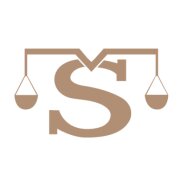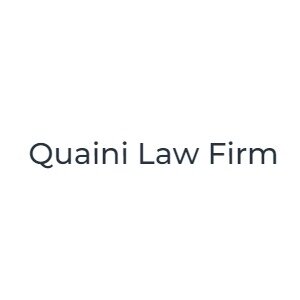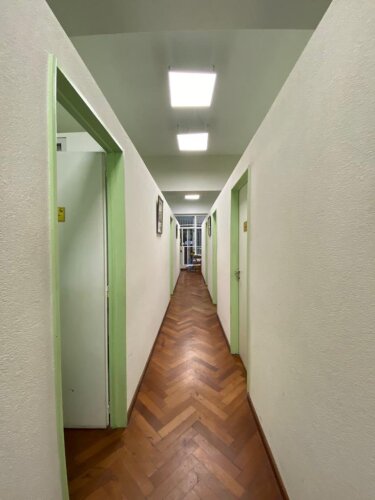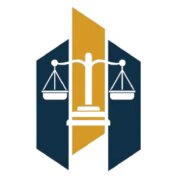Best Education Law Lawyers in Argentina
Share your needs with us, get contacted by law firms.
Free. Takes 2 min.
Or refine your search by selecting a city:
List of the best lawyers in Argentina
About Education Law in Argentina
Education law in Argentina governs the policies, regulations, and laws that oversee educational instruction and systems in the country. The Argentine education system is influenced by its constitutional mandate to provide free and equitable access to education for all. The National Education Law No. 26,206, enacted in 2006, is a pivotal legislative framework that outlines the country's commitment to quality education, defining the structure of primary, secondary, and tertiary education. It emphasizes inclusive education, equal opportunities, and the state's role in ensuring that education is a fundamental right.
Why You May Need a Lawyer
There are a variety of scenarios in which individuals or institutions may need legal guidance in the realm of education law in Argentina. Common situations include:
- Parents or guardians disputing school disciplinary actions or expulsions.
- Students or parents facing discrimination or harassment within the educational environment.
- Educators or staff dealing with employment-related issues or contract disputes.
- Institutions navigating the legal requirements for school operations, accreditation, or compliance with national education standards.
- Individuals or entities seeking to address issues related to special education and the provision of services for students with disabilities.
Local Laws Overview
Key aspects of Argentina’s education laws include the following:
- National Education Law No. 26,206: It defines the principles and objectives of education, including inclusivity, and mandates state responsibility for guaranteeing educational rights.
- Law of Education Funding (No. 26,075): Establishes mechanisms for financing the national educational system to ensure adequate resources.
- Teacher's Statute: Outlines the rights and responsibilities of educational professionals, as well as the conditions for employment and professional development.
- Special Education Laws: Set regulations for integrating students with disabilities into the general education system, ensuring their right to appropriate education.
Frequently Asked Questions
What is the role of the state in education in Argentina?
The state is responsible for ensuring accessible, equitable, and quality education for all citizens, as per the constitutional mandate and National Education Law. This includes funding, regulation, and oversight of educational institutions.
Are public schools in Argentina free of charge?
Yes, all public schools in Argentina offer education without charging tuition fees from initial levels to tertiary educational institutions as a constitutional right.
Can legal action be taken against a school for bullying?
Yes, legal recourse is available for addressing cases of bullying in schools. Parents and students can report issues, and the school is required to take appropriate measures under anti-bullying laws and policies.
What legal rights do students with disabilities have in Argentina?
Students with disabilities are entitled to inclusive education. Schools must provide necessary accommodations and resources to integrate them into the general education system.
What are the teacher's rights under the Teacher's Statute?
The Teacher's Statute ensures job security, fair wages, a defined employment framework, and the right to professional development.
Are there specific requirements for opening a private school in Argentina?
Yes, establishing a private school requires compliance with national and provincial education regulations, accreditation processes, and adherence to curriculum standards.
Can parents choose alternative education methods for their children?
While public education is the standard, parents can opt for private or home-schooling, provided that they meet regulatory requirements and students achieve recognized educational outcomes.
What steps can be taken if a student faces discrimination at school?
Students or parents should initially file a complaint with the school's administration. If unresolved, they can seek legal counsel to address discrimination through formal legal processes.
How does the Argentine education law address school suspensions and expulsions?
Decisions regarding suspensions and expulsions must follow due process, be non-discriminatory, and provide a chance for the student and parents to respond or appeal.
What resources are available to help understand educational rights in Argentina?
Several governmental bodies, non-profit organizations, and legal aid services offer resources to understand educational rights, such as the Ministry of Education and local education offices.
Additional Resources
For further information and support in education law matters, consider contacting the following:
- Ministry of Education, Argentina: Provides official information on education policies and rights.
- Defensor del Pueblo (Ombudsman): Addresses citizens’ complaints regarding education rights violations.
- Local Bar Associations: Offer legal advice and services related to education law.
- Non-Governmental Organizations: Groups like UNICEF Argentina support education advocacy and provide resources.
Next Steps
If you require legal assistance in education law within Argentina, consider taking these steps:
- Gather all relevant documents and information pertaining to your situation.
- Seek initial advice from an educational professional or an advocacy group to understand the nature of the legal issue.
- Consult with a legal expert or lawyer specializing in education law for personalized guidance and action.
- Contact local bar associations to find qualified legal practitioners in education law.
- Keep detailed records of all communications and steps taken regarding your case.
These measures can help in navigating the complexities of education law and ensuring your rights and interests are adequately protected.
Lawzana helps you find the best lawyers and law firms in Argentina through a curated and pre-screened list of qualified legal professionals. Our platform offers rankings and detailed profiles of attorneys and law firms, allowing you to compare based on practice areas, including Education Law, experience, and client feedback.
Each profile includes a description of the firm's areas of practice, client reviews, team members and partners, year of establishment, spoken languages, office locations, contact information, social media presence, and any published articles or resources. Most firms on our platform speak English and are experienced in both local and international legal matters.
Get a quote from top-rated law firms in Argentina — quickly, securely, and without unnecessary hassle.
Disclaimer:
The information provided on this page is for general informational purposes only and does not constitute legal advice. While we strive to ensure the accuracy and relevance of the content, legal information may change over time, and interpretations of the law can vary. You should always consult with a qualified legal professional for advice specific to your situation.
We disclaim all liability for actions taken or not taken based on the content of this page. If you believe any information is incorrect or outdated, please contact us, and we will review and update it where appropriate.
Browse education law law firms by city in Argentina
Refine your search by selecting a city.














